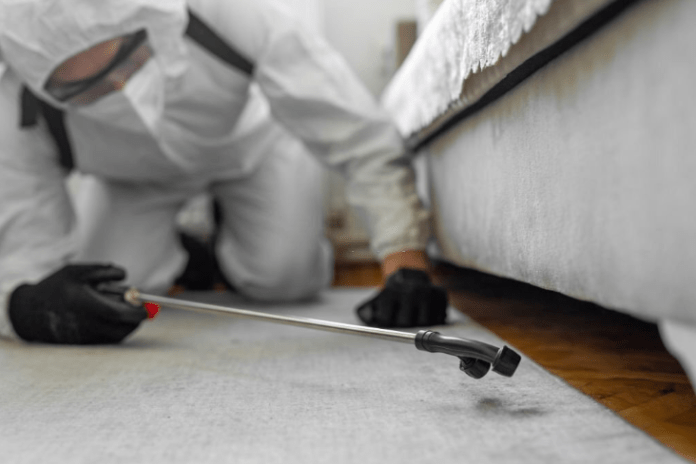As a small business owner, you have countless responsibilities on your plate. From managing finances to marketing your brand and keeping customers happy, it can be easy to overlook one crucial aspect of running a successful business: pest control. Whether you operate out of a storefront or work from home, pests can wreak havoc on your bottom line if left unchecked. In this post, Pest Control Ballan will explore the importance of pest control for small businesses and provide tips for preventing infestations before they start. Don’t let pests take over – read on to learn why pest control is crucial for the success of your small business!
Introduction to Pest Control and Small Businesses
As a small business owner, you know that protecting your investment is crucial to success. But did you know that pests can pose a serious threat to your business? Pest control is the process of preventing, controlling, and ultimately eliminating pests from your workplace.
There are many reasons why pest control is so important for small businesses. First and foremost, pests can cause serious damage to your property. They can also contaminate food and spread disease. In addition, pests can be a major nuisance for customers and employees alike.
Fortunately, there are many ways to prevent pests from taking over your small business. The first step is to identify potential problem areas and take steps to seal them off. You should also regularly inspect your premises for signs of infestation and take immediate action if you find any. Finally, consider investing in professional pest control services to keep your business pest-free.
Common Types of Pest Infestations in Small Businesses
There are many different types of pest infestations that can occur in small businesses. Some of the most common include rodents, cockroaches, ants, and flies. Each of these pests can pose a serious threat to your business, and it is important to take steps to prevent them from taking over.
Rodents are one of the most common types of pests that infest small businesses. They can enter through tiny cracks and holes in walls and floors, and once inside, they will begin to reproduce quickly. Rodents can spread diseases and contaminate food sources, so it is important to get rid of them as soon as possible.
Cockroaches are another type of pest that commonly infests small businesses. They are attracted to food and water sources, and can often be found in kitchens and bathrooms. Cockroaches can also spread diseases, so it is important to keep them out of your business.
Ants are another common type of pest that can infest small businesses. They are attracted to sweet foods and often enter through cracks in walls or floors. Ants can also contaminate food sources, so it is important to get rid of them as soon as possible.
Flies are another type of pest that commonly infests small businesses. They are attracted to garbage and other decaying matter, and can often be found in kitchens and bathrooms. Flies can also spread diseases, so it is important to keep them out of your business.
What are the Risks of Not Having Pest Control?
If you don’t have pest control for your small business, you run the risk of infestation. This can lead to unsanitary conditions, damage to your property, and even health risks for yourself and your employees. Customers will also be less likely to patronize your business if they see evidence of pests. In addition, not having pest control can void your insurance policy in some cases.
How Can Small Business Owners Implement Pest Control Strategies?
As a small business owner, you can’t afford to have pests take over your property. Not only are they a nuisance, but they can also cause structural damage and Spread diseases. That’s why it’s important to implement effective pest control strategies.
There are a number of things you can do to keep pests at bay. First, make sure your property is clean and free of clutter. This will make it harder for pests to hide and breed. Regularly sweep and vacuum floors, empty garbage cans, and wipe down surfaces.
Next, seal up any cracks or holes in your building’s exterior. This will help prevent insects and rodents from getting inside. Be sure to check doors and windows for gaps, and repair or replace weather-stripping as needed.
You should also invest in high-quality commercial pest control products. These will be more effective than household products and will help you keep pests out long-term. Look for products that are specifically designed for the type of pest you’re dealing with, such as ants, cockroaches, or mice.
Finally, don’t forget about regular maintenance and inspections. Have your property checked by a professional pest control company at least once a year. This will allow them to identify any potential problems early on so they can be dealt with quickly and efficiently.
Tips on Hiring a Professional Pest Control Company
If you own or operate a small business, chances are you’ve had to deal with pests at some point. Pest control is an important part of keeping your business safe and healthy, and it’s important to choose a professional pest control company that can provide the services you need. Here are a few tips on choosing the right pest control company for your business:
1. Make sure the company is licensed and insured. This is important in case something goes wrong during the pest control process.
2. Ask for references from other businesses. This will help you get an idea of the quality of service the company provides.
3. Get quotes from multiple companies before making a decision. This will help you ensure you’re getting the best value for your money.
4. Make sure the company uses eco-friendly methods and products. This is important if you want to minimize the impact on the environment.
5. Ask about the company’s guarantee or warranty policy. This will protect you in case there are any problems with the pest control services provided.
Alternatives to Professional Pest Control Services
In addition to professional pest control services, there are a number of things you can do to prevent pests from taking over your small business.
Here are a few alternatives to professional pest control services:
1. Keep your business clean and free of food and water sources that pests can access.
2. Store food in airtight containers and dispose of garbage regularly.
3. Seal cracks and other openings in your building that pests could use to get inside.
4. Use traps or baits to control pests rather than relying on pesticides.
5. Inspect shipments of goods coming into your business for signs of pests.
Conclusion
Pest infestation can be an expensive experience for small businesses, but with the right pest control techniques in place, it doesn’t have to be. By understanding the importance of pest control and taking preventative measures before any issues arise, you will save yourself time and money while keeping your business safe from unwanted pests. Don’t let pests take over your small business; make sure to invest in a proper pest-control program as soon as possible!




